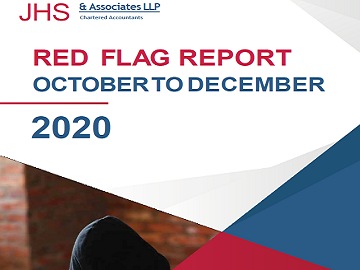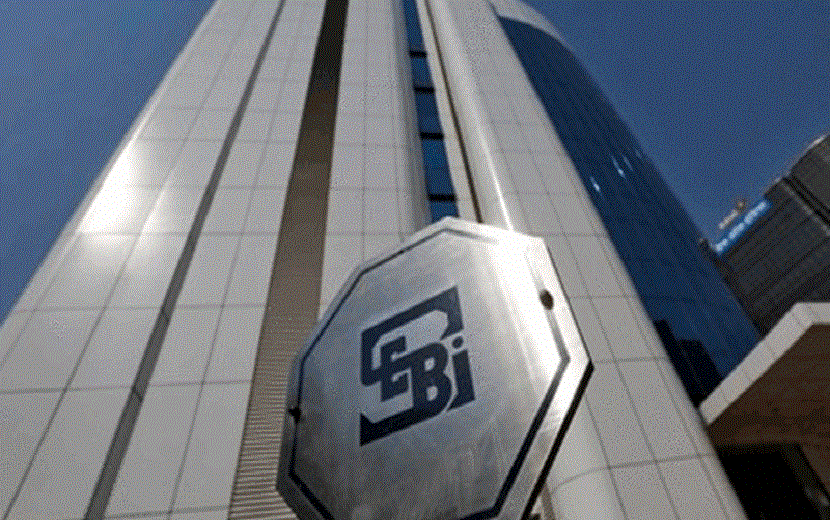Reference: Central Board of Indirect Taxes and Customs
Update:
Implementation of PGA e-SANCHIT– Paperless Processing under SWIFT Uploading of Licenses/Permits/Certificates/Other Authorizations (LPCOs) by PGAs:
The facility to upload digitally signed Licenses/Permits/Certificates/Other Authorizations (LPCOs) by Participating Government Agencies (PGAs) on e-SANCHIT at all ICES (Indian Customs EDI System) locations across India was introduced from 16.11.2018 vide Circular No. 44/2018-Cus. dated 13.11.2018.
43 PGAs have been enabled for uploading their LPCOs on eSANCHIT. Now, 4 more PGAs with their LPCOs are being brought on board the e-SANCHIT platform. With this, the total number of PGAs brought on board becomes 47.
Implication:
This will further reduce physical interface between Customs/regulatory agencies and the trade and also to increase the speed of clearance in both imports & exports.
Update:
No GST on providing goods transportation vehicle on hire by one GTA to another GTA
Saravana Perumal, In re (GST AAR Karnataka)
The applicant being a Goods Transport Agency (GTA) has sought an advance ruling to determine whether it can provide vehicles used for transportation of goods on hire basis to another GTA?
The AAR observed that the applicant is desirous of providing goods transportation services as GTA and giving vehicles on hire to another GTA. services provided as a GTA are different from the services provided by way of giving vehicles on hire basis to another GTA & hence are independent of each other so far as tax treatment is concerned. Further there is no provision in the law barring person being a GTA from renting the vehicle to another GTA. As far as treatment under GST is concerned, services of GTA in relation to transportation of goods are liable to 5% GST provided that ITC cannot be taken or 12% GST with ITC. Services of GTA when provided to specified category of persons are covered under reverse charge. However, the services of providing vehicles on hire basis to another GTA is exempt from GST.
Implication:
The Authority held that registered person can be GTA and can also give vehicles to another GTA on hire basis at the same time. Services of GTA are taxable at the rate of 5% or 12% and services of hire provided by GTA to another GTA are exempt from GST.
Update:
Levy and Collection of Social Welfare Surcharge (SWS) on imports under various schemes such as Merchandise Exports from India Scheme (MEIS), Services Exports from India Scheme (SEIS) etc:
clarifying that SWS ( Social Welfare Surcharge ) is calculated at the rate of ten per cent on the aggregate of duties, taxes, and cesses which are levied and collected under section 12 of the Customs Act, 1962.
the surcharge is in addition to any other duties of Customs or tax or cess chargeable on imported goods.
duty credit scrips are only a mode of payment of duty and not an exemption from duty even though the use of the said scrip is governed by an exemption notification.
SWS cannot be debited through duty credit scrips and therefore has to be paid by the importer in cash. The Circular directs the Directorate General of Systems to take necessary actions.
Implication:
With regard to past cases, the Circular notifies that past cases should not be disturbed and the payments made through debit in duty credit scrips may be accepted as revenue duly collected and recoveries in cash not be insisted on these cases.
Update:
Extension of due date for filing Form GSTR 1:
CBIC has extended the one-time amnesty scheme to file all FORM GSTR-1 from July 2017 to November, 2019 till 17th January, 2020.
Implication:
Taxpayers will have more time to file the return.
Reference: Central Board of Direct Taxes
Update:
Investment in Chit Fund isn\’t prescribed modes of investment u/s 11(5); ITAT disallowed trust exemption
ADIT v. Sree Gokulam Educational and Medical Trust – [2020] 113 taxmann.com 64 (Chennai – Trib.)
The assessee-trust was registered under section 12AA of the income-tax act. The assessee subscribed to the chits with M/s. Gokulam Chit and Finance Co. (P) Ltd. Assessing Officer (AO) denied the section 11 exemption on the ground that the assessee had violated the provisions of section 11(5).
However, the CIT(A) allowed exemption under section 11 by holding that the subscription to such chit fund couldn’t be treated as investment. It was an obligation to repay the loan availed earlier from such chit fund.
On revenue’s appeal, the Tribunal held that the trust must invest the fund in the modes prescribed under section 11(5) for claiming exemption under section 11. Investment in chits is not one of the mode prescribed under section 11(5).
The transaction of subscription to the chits was independent of the earlier transaction of loans. There was nothing on record to show that both transactions were interconnected. Subscription to the chits was nothing but the investment which was not one of the prescribed modes of investment under section 11(5).
Thus, it was a clear case of violation of provisions of Section 11(5) and trust was not entitled to exemption under section 11.
Reference: Reserve Bank of India
Update:
Hedging of Commodity Price Risk and Freight Risk in Overseas Markets (Reserve Bank) Directions, 2018 – Amendment
RBI has amended the Hedging of Commodity Price Risk and Freight Risk in Overseas Markets (Reserve Bank) Directions, 2018.
As per the said amendment Banks shall submit a quarterly report to the Chief General Manager, Financial Markets Regulation Department, Reserve Bank of India through Extensible Business Reporting Language (XBRL) accessible at https://xbrl.rbi.org.in/orfsxbrl/ in the format provided in prescribed by RBI.
Implication:
In case of no transactions, a “Nil” report shall be submitted by the bank.
Update:
Reporting of Large Exposures to Central Repository of Information on Large Credits (CRILC) – UCBs:
Primary (Urban) Co-operative Banks (UCBs) having total assets of ₹500 crore and above as on 31st March of the previous financial year (hereinafter referred to as “banks”) shall report credit information, including classification of an account as Special Mention Account (SMA), on all borrowers having aggregate exposures of ₹5 crore and above with them to Central Repository of Information on Large Credits (CRILC) maintained by the Reserve Bank. Aggregate exposure shall include all fund-based and non-fund based exposure, including investment exposure on the borrower.
The banks need to submit the data on large exposures within 30 days from the end of the quarter through XBRL reporting platform of RBI.
CRILC – UCBs return will comprise of three sections viz.
- Section 1: Exposure to Large Borrowers: The bank needs to report the credit information of all borrowers having aggregate exposures (fund-based, non-fund based and investment exposure) of ₹5 crore and above
- Section 2: Reporting of Technically / Prudentially Written-off Accounts: Bank needs to report the data on the amount written off, if any, for borrowers whose technically/prudentially written off amount is ₹5 crore or more and which are not reported in Section 1.
- Section 3: Reporting of Balance in Current Account: Bank needs to report the data on Current Account holders whose
- balance (either credit or debit) in current account as on reporting date is ₹1 crore and above or
- total of credit summation (sum of all credit transactions) during the reporting quarter is ₹5 crore and above or
- total of debit summation (sum of all debit transactions) during the reporting quarter is ₹5 crore and above
Implication:
Banks shall submit the data in CRILC-UCBs return with effect from the quarter ended December 31, 2019.
Update:
Kolikata Mahila Co-operative Bank Limited, Kolkata, West Bengal – Extension of Period of Directions:
RBI had issued Directions to Kolikata Mahila Co-operative Bank Limited, Kolkata, West Bengal from the close of business on July 09, 2019 which was valid till January 09, 2020.
RBI has now further extended the Directions for a period of six months from January 10, 2020 to July 09, 2020.
Implication:
The bank will continue to undertake banking business with restrictions till its financial position improves.
Update:
Enhancing Security of Card Transactions:
In order to enhance security of Card Transactions RBI has issued below guidelines:-
a) At the time of issue / re-issue, all cards (physical and virtual) shall be enabled for use only at contact based points of usage [viz. ATMs and Point of Sale (PoS) devices] within India. Issuers shall provide cardholders a facility for enabling card not present (domestic and international) transactions, card present (international) transactions and contactless transactions, as per the process outlined in para 1 (c).
b) For existing cards, issuers may take a decision, based on their risk perception, whether to disable the card not present (domestic and international) transactions, card present (international) transactions and contactless transaction rights. Existing cards which have never been used for online (card not present) / international / contactless transactions shall
be mandatorily disabled for this purpose.
c) Additionally, the issuers shall provide to all cardholders:
- facility to switch on / off and set / modify transaction limits (within the overall card limit, if any, set by the issuer) for all types of transactions – domestic and international, at
PoS / ATMs / online transactions / contactless transactions, etc.; - the above facility on a 24×7 basis through multiple channels – mobile application / internet banking / ATMs / Interactive Voice Response (IVR); this may also be offered at branches / offices;
- alerts / information / status, etc., through SMS / e-mail, as and when there is any change in status of the card.
Implication:
The provisions of this circular are not mandatory for prepaid gift cards and those used at mass transit systems.
Update:
Directions to Sri Gururaghavendra Sahakara Bank Niyamitha, Bengaluru, Karnataka:
RBI has issued certain Directions to Sri Gururaghavendra Sahakara Bank Niyamitha, Bengaluru, Karnataka whereby, as from the close of business on January 10, 2020, the aforesaid bank shall not, without prior approval of RBI in writing grant or renew any loans and advances, make any investment, incur any liability including borrowal of funds and acceptance of fresh deposits, disburse or agree to disburse any payment whether in discharge of its liabilities and obligations or otherwise, enter into any compromise or arrangement and sell, transfer or otherwise dispose of any of its properties or assets except as notified in the RBI Directions dated January 2, 2020, a copy of which is displayed on the bank\’s premises for perusal by interested members of the public.
In particular, a sum not exceeding Rs. 35,000/- (Rupees thirty five thousand only) of the total balance in every savings bank or current account or any other deposit account may be allowed to be withdrawn subject to conditions stated in the above RBI Directions.
Implication:
These Directions shall remain in force for a period of six months from the close of business of January 10, 2020 and are subject to review.
Update:
Framework for imposing monetary penalty on authorised payment system operators / banks under the Payment and Settlement Systems Act, 2007:
RBI has released the revised framework for imposing monetary penalty on authorised payment system operators / banks under the Payment and Settlement Systems Act, 2007 for not complying with regulatory requirements.
RBI has powers to impose monetary penalty in respect of certain contraventions as well as compound certain contraventions. The type / nature of contravention for which penalty can be imposed and compounded are different and vary. This has been detailed including the procedure to be followed.
RBI is empowered to impose a penalty not exceeding ₹ 5 lakh or twice the amount involved in such contravention or default where such amount is quantifiable, whichever is more, in case of contraventions / defaults. If such contravention or default is a continuing one, a further penalty up to ₹ 25,000/- for every day after the first during which the contravention or default continues, can be imposed.
RBI is empowered to compound contraventions of any of the punishable offences under the Act, not being an offence punishable with imprisonment / imprisonment and fine.
Implication:
This will ensure safety and security to various stakeholders, including customers.
Update:
RBI permits UPI transactions for recurring payments:
In view of the promotion of digital payments, RBI has permitted processing of e-mandate for recurring payments through UPI (Unified Payments Interface).
This functionality will allow UPI users to bypass additional factor authentication (AFA), a security measure put in place for card payments that requires OTP – one-time password verification) during registration and 1st transaction.
Under this facility, an agreement is formed between the consumer and the merchant bodies and the payment of the outstanding dues is done automatically on the fixed date of the month. However, the maximum permissible limit under this payment system shall be Rs 2,000 per transaction.
Implication:
All the instructions / conditions outlined in the circular under reference would apply, mutatis mutandis, while processing e-mandate in UPI
Reference: Securities Exchange Board of India
Update:
Exemption from clubbing of investment limit for foreign Government agencies and its related entities
SEBI has issued circular providing exemption from clubbing of investment limit for foreign Government agencies and its related entities
As per the amendment in Securities and Exchange Board of India (Foreign Portfolio Investors) Regulations, 2019, The investment by foreign Government agencies shall be clubbed with the investment by the foreign Government/ its related entities for the purpose of calculation of 10% limit for FPI investments in a single company, if they form part of an investor group. However, certain foreign Government agencies and its related entities may be exempt from such clubbing requirements and other investment conditions either by way of an agreement or treaty with other sovereign governments or by an order of the Central Government.
Update:
Facility to view status of/deficiency in claim applications and making good those deficiencies:
The Justice (Retd.) R.M. Lodha Committee (the “Committee”) had initiated the process of refunds for investors of PACL having claim amount upto Rs. 5,000/- and till date 3,81,603 such investors/applicants have been paid. However, certain applications could not be processed further on account of one or more deficiencies.
The Committee had vide press release dated December 03, 2019 informed that an opportunity will be provided to all investors/applicants with claims upto Rs. 5,000/-, whose claim applications were found deficient, to make good deficiencies as may be applicable to their claims, so as to enable their claims to be processed.
Accordingly, investors/applicants with claims upto Rs. 5,000/- are requested to check the status of their claim applications online on https://www.sebipaclrefund.co.in and rectify the deficiencies, if any. The portal will be operational from January 24, 2020.
Implication:
The last date for checking the status of claim applications and/or rectification of deficiencies will be July 31, 2020.
Reference: Employment / Labour Laws
Update:
‘The Industrial Relations Code, 2019’ and ‘The Code on Social Security, 2019’, as introduced in Lok Sabha have been referred by the Speaker to the Standing Committee on Labour headed by Shri Bhartruhari Mahtab, MP for examination and report. The committee have decided to invite memoranda containing views/suggestions separately on each Code from the public in general and NGOs/ Experts/ Stakeholders and Institutions in particular.
The procedure for submitting written memoranda/suggestions and tendering oral evidence before the committee can be seen at our website www.loksabha.nic.in under link ‘Committees’→ Press Release.













